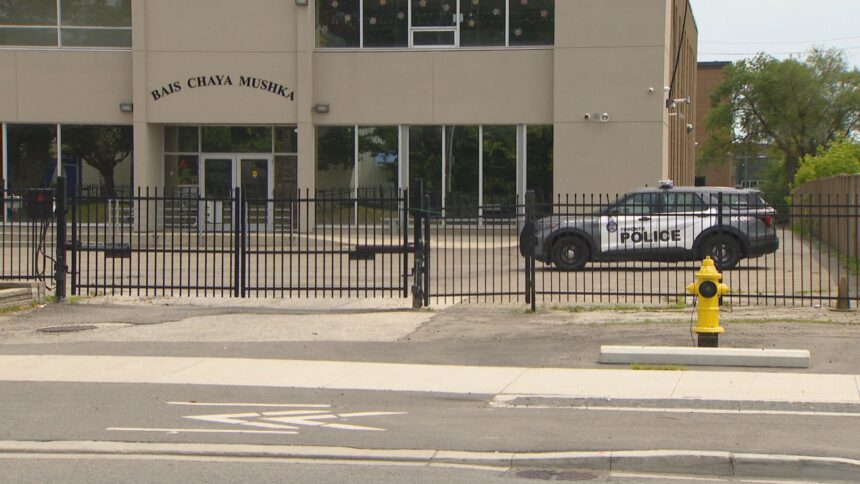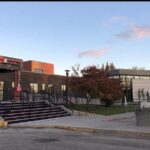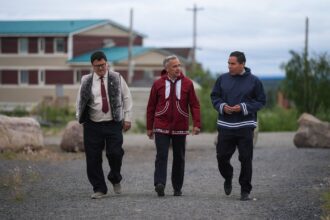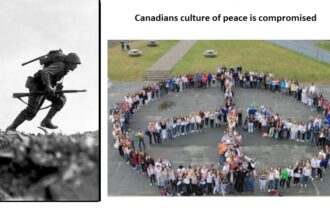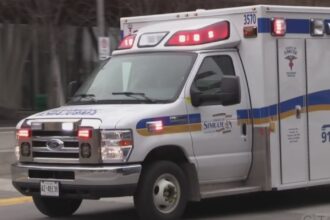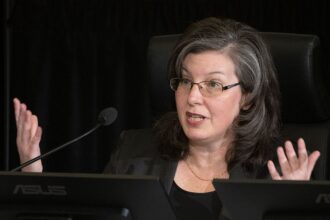In a coordinated response to escalating global tensions, police forces across the Greater Toronto Area have significantly enhanced security measures around places of worship this week. The heightened vigilance comes as international conflicts continue to reverberate through local communities, creating an atmosphere of unease that authorities are working diligently to address.
“We’re implementing a proactive approach to ensure all faith communities feel protected during this challenging time,” explained Toronto Police Superintendent Maya Richardson during yesterday’s press briefing. “Our increased presence is both a deterrent to potential incidents and a reassurance to worshippers that their safety remains our priority.”
The enhanced security protocols include visible patrol cars stationed outside major religious centers, plainclothes officers monitoring surrounding areas, and increased community engagement efforts. These measures span across synagogues, mosques, temples, and churches throughout Peel Region, York Region, and Toronto proper.
Religious leaders across the GTA have welcomed the increased police presence while emphasizing the importance of maintaining open and welcoming spaces. Rabbi David Goldstein of Beth Shalom Synagogue in North York noted, “We appreciate the support from law enforcement while remaining committed to being a sanctuary for all. Security measures are necessary, but so is preserving the fundamental openness of our spiritual spaces.”
Statistical evidence supports the precautionary approach. According to recent data from Public Safety Canada, reported threats against religious institutions nationwide have increased by 32% over the past six months, with the GTA accounting for nearly a quarter of all incidents.
The intensified security follows heightened global tensions stemming from the ongoing Middle East crisis, which has triggered demonstrations and occasionally hostile encounters in major urban centers worldwide. Toronto, with its diverse multicultural population, has experienced the ripple effects of these conflicts more acutely than many North American cities.
Peel Regional Police Chief Omar Hassan emphasized that the increased patrols represent a preventative strategy rather than a response to specific threats. “We have no credible intelligence suggesting imminent danger to any religious facility in our jurisdiction,” Chief Hassan stated. “However, international events have historically shown potential to inspire isolated actors. Our enhanced presence serves as both reassurance and deterrence.”
Community leaders are also taking an active role in security planning. Many places of worship have established volunteer security committees working directly with police liaisons to develop customized safety protocols. These collaborative efforts represent a significant evolution in community policing approaches across the region.
“The relationship between faith communities and law enforcement has never been stronger,” observed Imam Farid Khalil of the Islamic Center of Mississauga. “We’re having meaningful conversations about protection while preserving the sanctity and accessibility of our spaces.”
The financial impact of these security enhancements remains a concern for smaller congregations. Provincial officials have indicated that emergency funding may become available through the Ontario Security Infrastructure Program, though details remain pending as budget negotiations continue.
As summer approaches with its numerous religious observances and community gatherings, authorities are balancing heightened vigilance with a commitment to supporting normal religious activities. “Our goal is to ensure worship continues uninterrupted while providing peace of mind,” noted York Regional Police Chief Sandra Williams.
As tensions in the Middle East show little sign of immediate resolution, how will Toronto’s diverse communities navigate the delicate balance between necessary security and maintaining the open, welcoming nature that defines places of worship?

